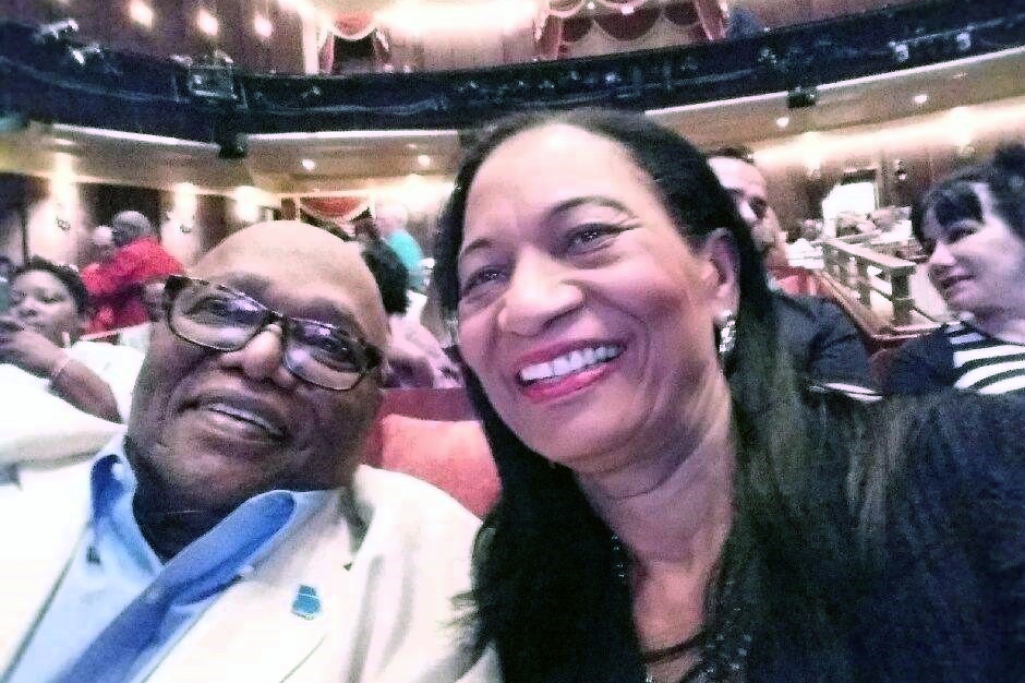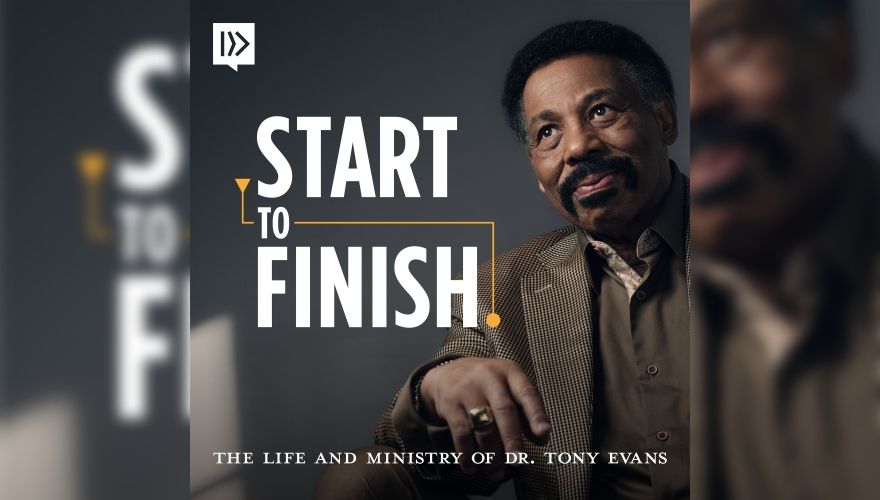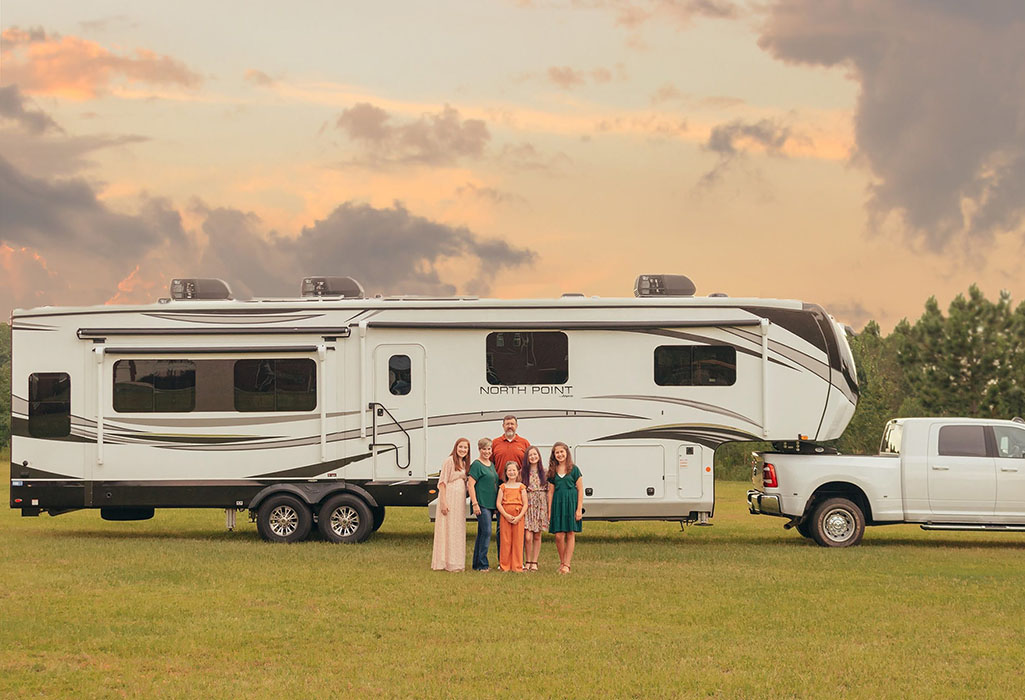
Pastor Grady and Kathleen Caldwell celebrated their 50th wedding anniversary at an Anita Baker concert in the early stages of Kathleen's battle with Alzheimer's. The trip was a gift from their children.
GRIFFIN, Ga. (BP) – “Therapeutic lying” was a new concept for Grady Caldwell Jr. As the primary caregiver for his wife Kathleen in the latter stages of Alzheimer’s, surely he shouldn’t allow her to believe her mother Lois, deceased for years, just visited them at home.
Caldwell, senior pastor of New Mercy Baptist Church in Griffin, Ga., tried telling Kathleen the truth when she talked of speaking with her brother, Bruce Jones, who had passed 20 years earlier.
“And she fell into a state of depression that was unbelievable. And that’s what got me to begin to walk in the truth of that term, that there is such a thing as, ‘It’s better to just lie and go along with them, than to try to get them to see the truth,’” Caldwell told Baptist Press. “It’s better to live in her reality, than to try to bring her into the reality of what’s actually going on.”
Former Southern Baptist Convention President Jim Henry, caregiver to his wife Jeanette who died of Alzheimer’s in 2019, can relate to Caldwell.
Henry recalls the time – more than 50 years into their marriage – when he and Jeanette were driving to North Carolina for summer vacation early in her battle with the disease.
“And she said, ‘You can’t spend the night with me.’” Why? “Well, we’re not married.”
Henry tried to convince her they’d been married decades, showing her his wedding ring.
“You can buy one of those anywhere,” Jeanette proclaimed, but she’d forgotten the entire conversation by the time they reached their vacation home.
Caldwell, 74, is among 11 million Americans who serve as caregivers to Alzheimer’s and dementia patients, the Alzheimer’s Association reports of the disease that afflicts an estimated 6.7 million adults in the U.S. Symptoms are progressive, with no known cure. By 2050, nearly 13 million Americans are projected to have the disease.
Kathleen, 73, was diagnosed five years ago after Caldwell began to notice changes in his childhood sweetheart and wife of 55 years. He was accustomed to her being a studious, frugal and trustworthy multitasker. Usually meticulous in keeping financial records for the church, she’d begun to slip. Bills were paid late or not at all, which was nothing like the Kathleen he had loved since eighth grade. She couldn’t recall names. Sentences were no longer cohesive.
He cares for Kathleen while pastoring full time, utilizing a home office that allows him to keep her safe while leading the church of about 100 worshipers. His daughter Carmen, who serves on New Mercy’s staff, lives on the top floor of the Caldwell home, and a caregiver comes in twice a week.
But for all the love the couple has shared, he said nothing has led him to understand God’s love as clearly as caring for Kathleen in these latter days.
“Through this, God has really given me a greater sense of His love for the Church,” Caldwell said, “and He compels me to love her as He loves the Church. But also, He shows me as much as I do, how short I still come. And that’s amazing to me, how much God loves us.”
Caldwell shared Kathleen’s diagnosis with his congregation five years ago, preparing them for his eventual retirement. But he continues to serve the church through the tremendous changes the disease has wrought, even as his responsibilities at home continue to increase.
“Through it all, God’s grace has kept us. I can see His hand throughout this entire process.”
Caldwell believes his daughter Carmen’s return home years before Kathleen’s diagnosis was providential. Most days, Carmen gets Kathleen dressed in the morning, as Caldwell cares for her the remainder of the day. But on days when Carmen’s schedule doesn’t allow the usual routine, grooming duties are Caldwell’s responsibility.
“The days that (Carmen) can’t, I do everything,” Caldwell said. “And I’m still not good on doing hair. So the days when I have to do it all, she has on a cap that day. My wife has always been particular about her dress.”
The Southern Baptist Convention recognized the complexity of caring for Alzheimer’s and dementia patients in 2016, passing the resolution “On Alzheimer’s Disease and Dementia, Caregiving, and the Church.”
Family members are often the predominant caregivers, messengers said. Recognizing the stress, depression, anxiety, isolation and interruption of church worship caregivers endure, messengers encouraged churches to learn about Alzheimer’s and dementia, assist caregivers with care and expand ministries to include outreaches to those suffering from the diseases.
Henry, who co-wrote with Deb Terry a 2019 book for Alzheimer’s caregivers and family members, said the church can play a crucial role in ministering to caregivers and Alzheimer’s patients.
“The churches, I think, need to reach out and start being very conscious of how many people are affected by it,” Henry told Baptist Press. Before his first wife’s diagnosis, when Henry pastored First Baptist Church of Orlando, Fla., a couple of church members asked Henry for permission to start an Alzheimer’s support group.
“I said sure,” Henry recalled, “not knowing that sometime later, my daughter would be going to those meetings and telling me what was happening, and reporting back to me, because this group became so helpful.”
Many people inside and outside the church benefited from the support group, Henry said, and First Orlando has helped other churches in Florida and other states launch similar groups.
“Starting a support group for people who are caregivers and family,” Henry said, “and even people who are going through dementia is a powerful thing. What happens is it becomes a ministry not only to people in the church, but … it becomes an outreach.”
Caldwell said his journey has taught him how much he must die to himself in caring for his wife, just as Jesus died to save the world.
“(God) compels me to love her as Christ loves the Church, where He was willing to die for the Church,” Caldwell said. “And He’s showing me through this, how much I have to die to myself, and what I want to do, how I want to do it, to make sure she’s cared for.”
(EDITOR’S NOTE – Diana Chandler is Baptist Press’ senior writer.)


